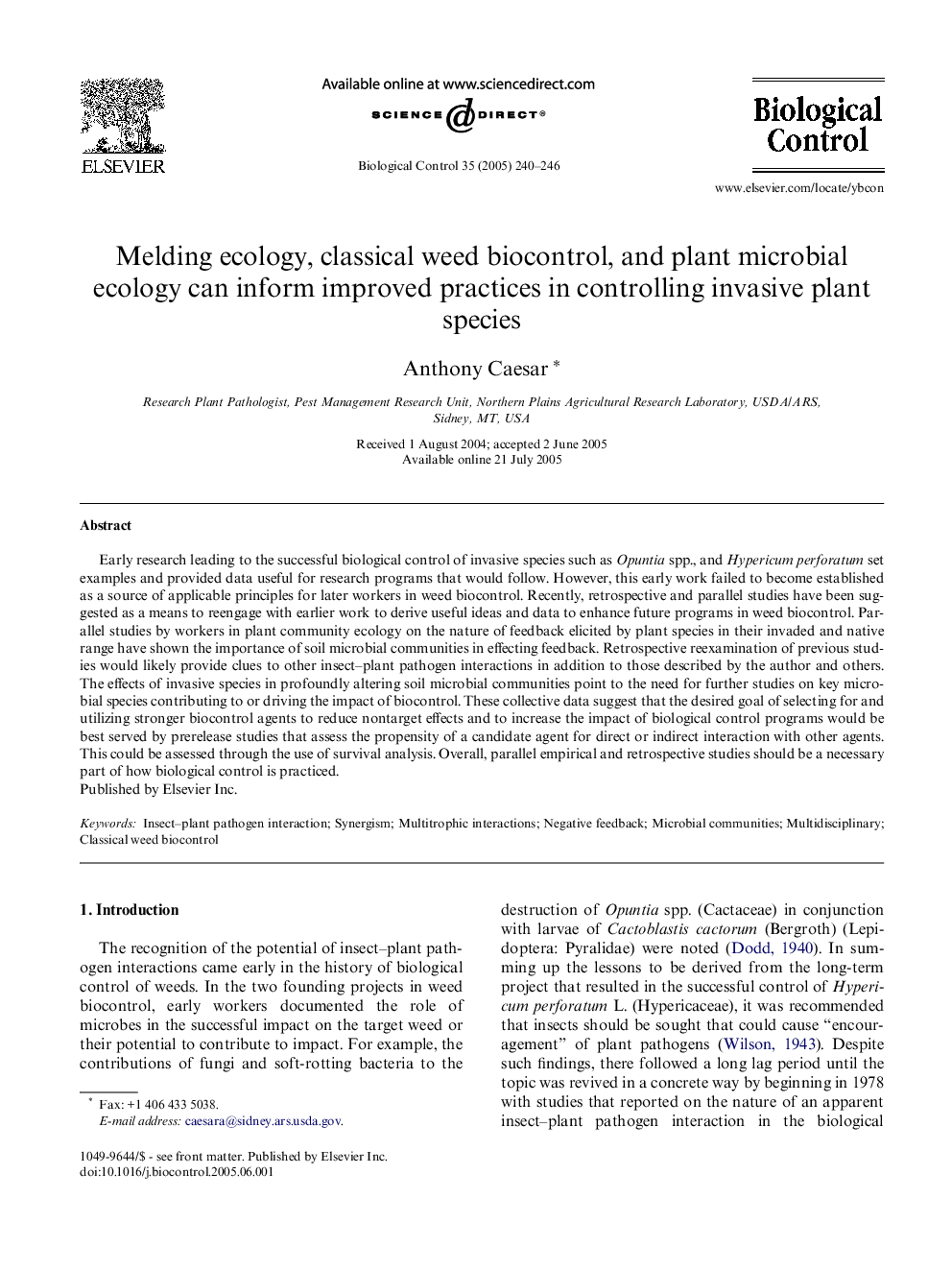| Article ID | Journal | Published Year | Pages | File Type |
|---|---|---|---|---|
| 9471892 | Biological Control | 2005 | 7 Pages |
Abstract
Early research leading to the successful biological control of invasive species such as Opuntia spp., and Hypericum perforatum set examples and provided data useful for research programs that would follow. However, this early work failed to become established as a source of applicable principles for later workers in weed biocontrol. Recently, retrospective and parallel studies have been suggested as a means to reengage with earlier work to derive useful ideas and data to enhance future programs in weed biocontrol. Parallel studies by workers in plant community ecology on the nature of feedback elicited by plant species in their invaded and native range have shown the importance of soil microbial communities in effecting feedback. Retrospective reexamination of previous studies would likely provide clues to other insect-plant pathogen interactions in addition to those described by the author and others. The effects of invasive species in profoundly altering soil microbial communities point to the need for further studies on key microbial species contributing to or driving the impact of biocontrol. These collective data suggest that the desired goal of selecting for and utilizing stronger biocontrol agents to reduce nontarget effects and to increase the impact of biological control programs would be best served by prerelease studies that assess the propensity of a candidate agent for direct or indirect interaction with other agents. This could be assessed through the use of survival analysis. Overall, parallel empirical and retrospective studies should be a necessary part of how biological control is practiced.
Related Topics
Life Sciences
Agricultural and Biological Sciences
Agronomy and Crop Science
Authors
Anthony Caesar,
